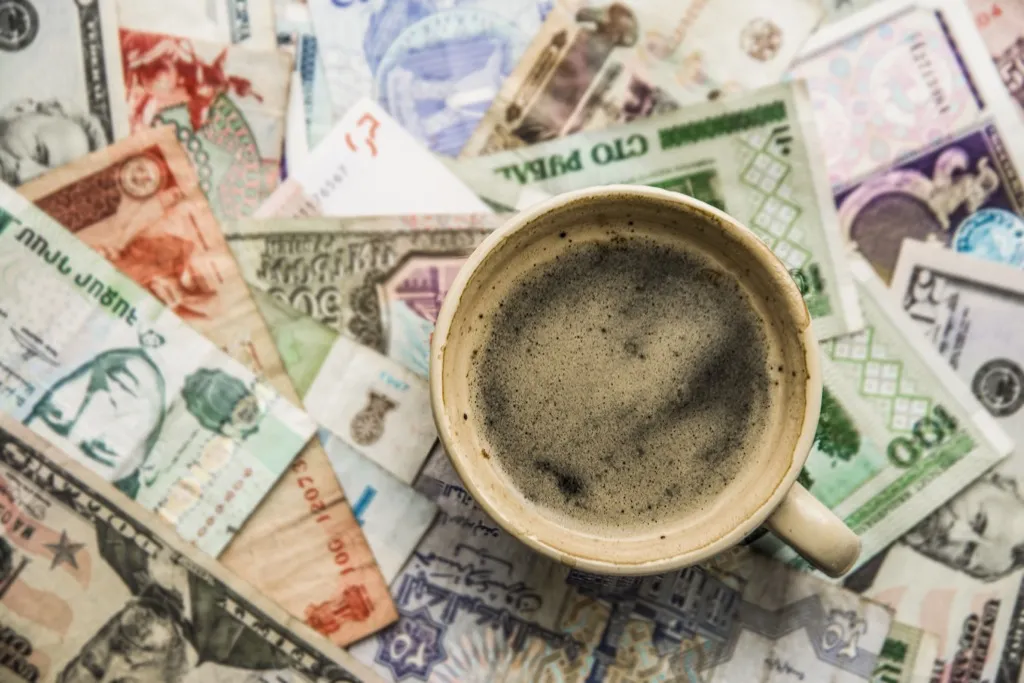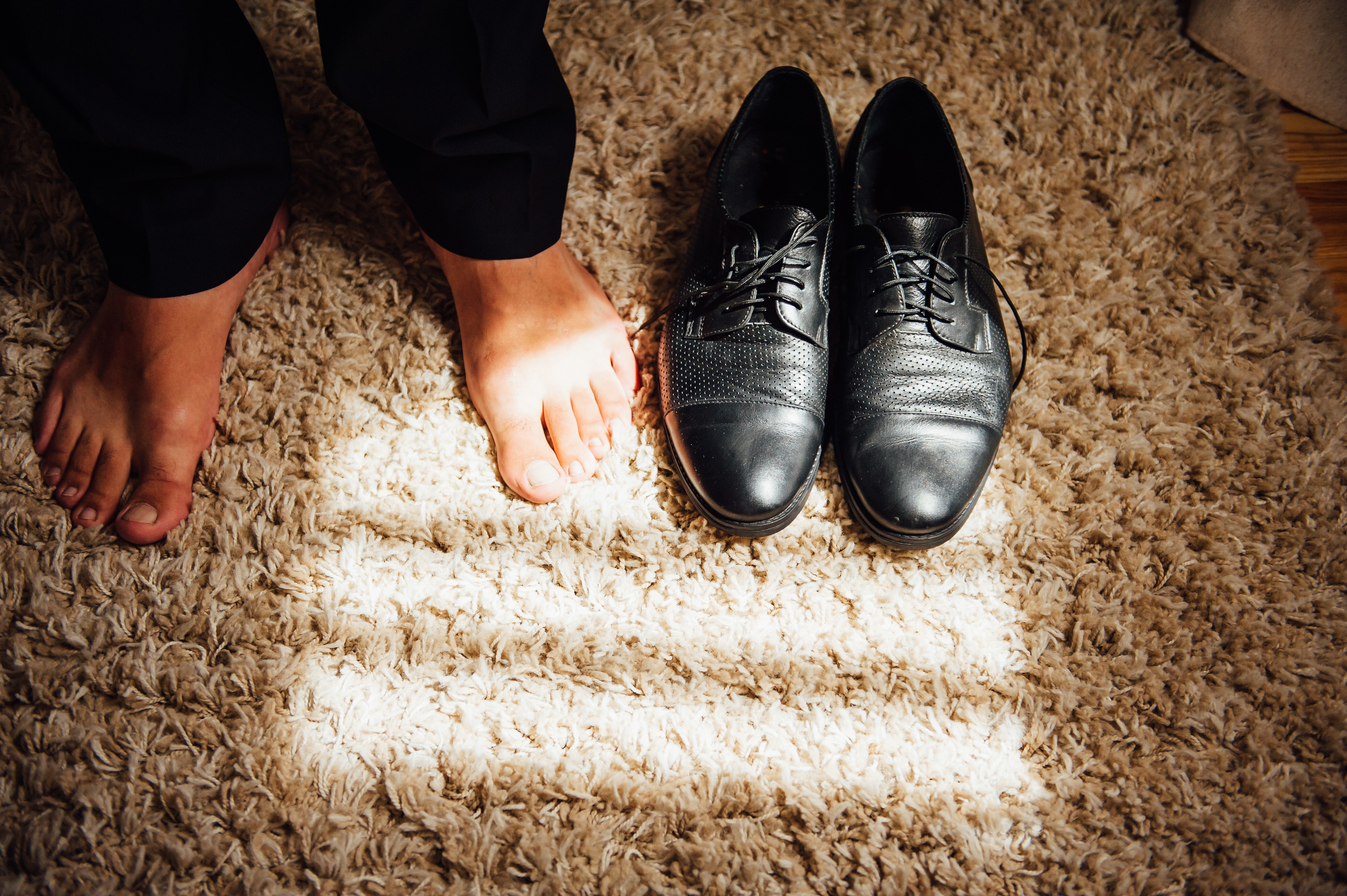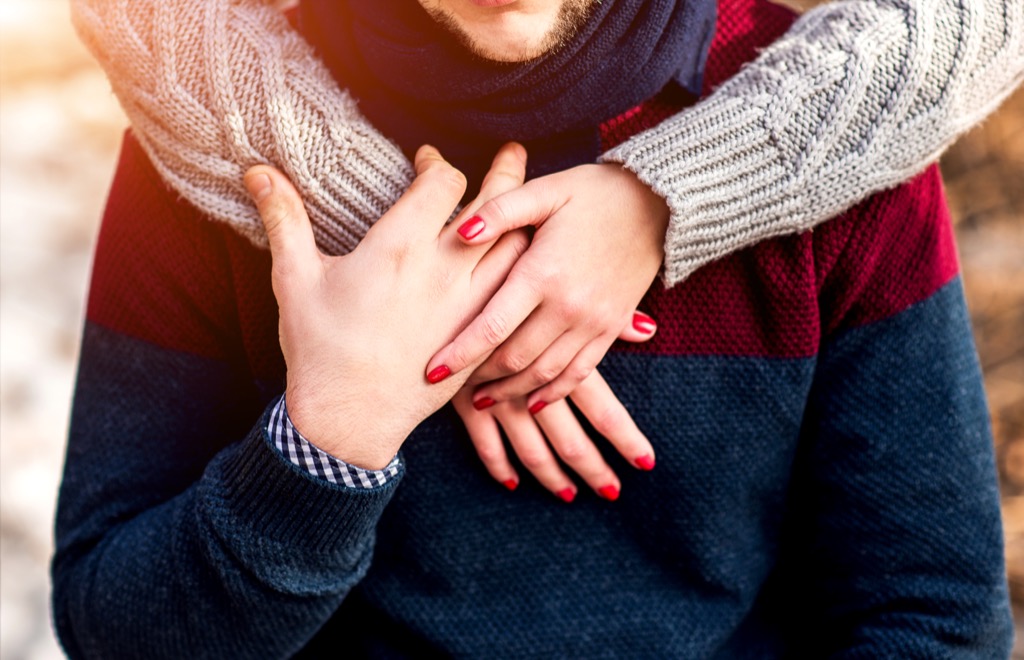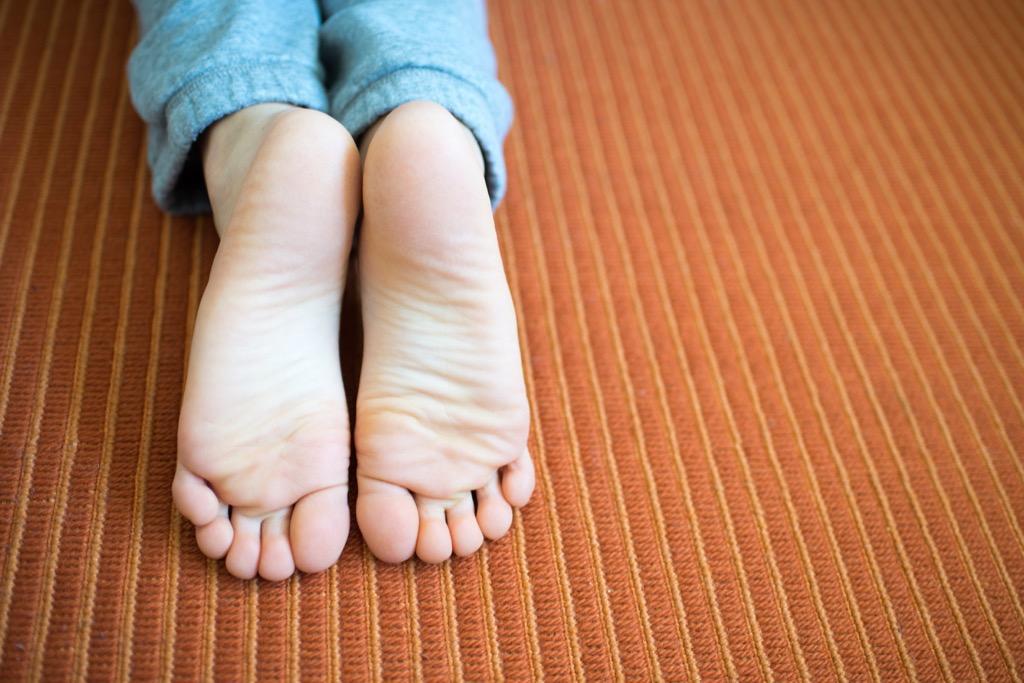
As exciting as it is to travel to a foreign country, anyone who's ever stepped foot on new terrain knows that it can also be a cultural minefield if you don't know the rules. Generally speaking, being polite and observing what the natives do will go a long way in your quest to avoid offending your hotel manager or that cute girl at the bar. But what about those unique social customs that you couldn't possibly know about without doing some research beforehand?
For those, we've compiled a handy list of some of the most crucial mistakes that people make when traveling abroad below. So print this out along with your boarding pass—and for more travel tips, don't miss these 35 Brilliant Travel Hacks Only Experience Globetrotters Know.
1
Tipping in Japan

In America, leaving anything other than a 15% tip can seem rude—even if your waiter just spit in your face. In Japan, however, it's the opposite. Trust me: waiters will chase you down the street to give you back that $1.50.
2
Wearing your shoes indoors

In America, it's pretty common to waltz around another person's house in your outdoor shoes. But in Russia, Norway, Malaysia, Japan, and many other countries, it's like taking a bucket of dirt and mud and casually sprinkling it around your host's apartment.
3
Sitting on a bed in your "outdoor clothing"

One of the biggest questions that I receive from people when I travel is, "Why do Americans sit on their beds in their outdoor clothing?" They see teenagers do this on the Disney channel and are absolutely dumbfounded. Why would you soil your bed, your sacred haven of sleep, with the hobo residue that your pants are carrying from your commute back home?
4
Kissing or holding hands outside

You might be accustomed to public displays of affection out west, but in India, kissing in public can get you jailed for "public obscenity." Same goes for a lot of Muslim countries, even the progressive ones like Morocco, where you'll notice that even at 3 am at a nightclub no one is making out.
5
Dressing provocatively

This seems like an obvious one but it's amazing how many American girls can be seen wearing short shorts and a tank top in India, Africa, and Muslim countries in the Middle East, where it's expressly frowned upon. There's no reason to go full burqa, but covering the shoulders, chest, and knees goes a long way.
6
Wishing someone a happy birthday before their actual birthday

This one might seem strange, but wishing someone a happy birthday before the date of their birthday is a bad omen in countries like Russia and Germany, where you're basically jinxing someone and encouraging bad spirits to kill them before their actual birthday.
7
Shaking hands with your left hand

In Indonesia and other countries with large Hindu populations, your left hand is used to clean your bottom, so it's considered quite rude to use it to shake someone's hand. Just use the right one to be safe. And for more on proper etiquette, here are 23 Old-Fashioned Etiquette Rules That Still Apply Today.
8
Waiting for the rice in China

In the U.S., we're accustomed to enjoying white rice with the nice, greasy goo of our meal. But, in China, the rice shows up last, and eating it means you were still hungry after your dinner.
9
Giving umbrellas or clocks as gifts in China

Chinese people are very superstitious when it comes to homophones. The number 8, for example, is considered good luck because it sounds very similar to the word that means "wealth" or "fortune." The word "umbrella," however, sounds like "separation," and the word "clock" sounds like "paying last respects," so those are not good presents to give.
10
Wearing a bathing suit in a sauna

In places where the sauna is used for actual bathing–like Turkey, Russia, and other Scandinavian countries–it's weird to be anything other than nude in a sauna. If the thought of that makes you uncomfortable, you can always wrap your naked body in a towel.
11
Using the bidet the wrong way

America is one of the few countries in the world that somehow hasn't caught on to the miraculous contraption that is a bidet. Even in third-world countries like India and Morocco, you'll find them in virtually any hotel room, and you may at first be perplexed by their appearance. To be clear, they are for washing the derriere post-bowel movement, not before.
12
Raising your arms to wave in Greece

In Greece, extending all five of your fingers while waving your arms is an insulting gesture that's called a mountza, not what you do when you think you see your next-door neighbor crossing the street outside the supermarket.
13
Blowing your nose at the table

This one should be kind of obvious but it's a particularly intense faux pas in China, where it's perfectly acceptable to hawk out your excess phlegm on the street outside, but not into a tissue at the dinner table.
14
Failing to notice that your date's wineglass is empty

It's always gentlemanly to top up a woman's glass when it's running low on wine, but in a lot of countries you would do this even if you weren't on a date. In Russia, for example, it's considered vulgar for a woman to just grab a bottle of wine and pour it for herself, so she waits for the man closest to her at the table to do it for her. Don't make her wait too long!
15
Asking for an Irish Car Bomb in Northern Ireland

A favorite among frat boys, the Baileys and Guiness concoction is pretty popular in the U.S. But in Northern Ireland itself, the name is offensive—since they've got quite a tragic history of terrorism attacks via actual car bombings.
16
Taking photos without asking for permission

This can be a faux pas even in America, where the Amish, for example, refuse to be photographed because it is considered immodest. Native Americans and Australian Aborigines are also wary of being photographed, as they believe a snapshot can capture the soul. Even in the souks of Morocco, you'll find that people can get very offended if you photograph their shop without asking for permission or offering a couple of dirhams. Never hurts to ask first!
17
Making the OK sign with your fingers

When traveling in a country in which you don't speak the languages, you might be hoping to rely on gestures to get you around. But be aware that, in Turkey or Brazil, for example, making a circle with your pointer and thumb usually indicates to someone that you are quite literally comparing them to your rear end.
18
Touching someone's head

In Buddhist countries, the head is considered the most sacred body part, so patting someone on the head is a major no-no. So, no matter how cute that little boy is, resist the urge to tussle his hair.
19
Talking or eating during a toast

In Eastern European countries, a toast can last for ages, and include lots of crying. No matter how tired you are of holding your shot glass up in the air, and no matter how much you want it, you must persevere and wait until the toast is over to clink glasses and drink to the bottom.
20
Making the "sign of the horns."

While in the U.S. it's used to show that you're jamming to a piece of awesome rock music, in many Mediterranean and Latin countries it's used as a way of telling someone that they are being cheated on.
21
Giving the lady of the house a bouquet of yellow roses

Again, you'd never expect it, but in France and Germany giving the hostess a bouquet of yellow roses indicates that her partner is cheating on her.
22
Taking a business card in Japan and immediately putting it in your pocket

The Japanese take business cards very seriously, to the point where presenting them is a ritual known as meishi koukan. The highest ranking person gives his/her card first face-down. The other person receives the card with both hands, carefully studies it, and keeps it in their hands for the remainder of the conversation. Then you must guard it with your life, because how you treat the card symbolizes how you'd treat the person. It's not like the U.S., where you just take one and shove it in your pocket, only to throw it away on laundry day.
23
Forgetting to take off your toilet slippers

In Japan, people often have special slippers to wear when they use the bathroom, but it does not do to wear them once you've done your business and walked out.
24
Making the "peace" sign

Beloved by hippies all over, making a V-sign with your index and middle finger is generally considered to indicate that you are all warm and crunchy granola inside. But in Ireland and the U.K., it's equivalent to flipping someone off.
25
Arriving on time in China

In China, arriving on time means you're late, so it's good to always show up at least 15 minutes before expected. In a lot of Latin countries, the opposite is true.
26
Entering or exiting the room first

Asian culture has a huge focus on respect toward the elderly, so they are always allowed to exit and enter the room first. Unless you're the oldest one, stay back!
27
Pointing with your feet

Just as the head is considered the most sacred part of the body in Buddhist cultures, the feet are considered the least sacred, and pointing with them or showing off the soles in Southeast Asia is extremely offensive.
28
Chewing gum in Singapore

Little known fact: chewing gum is illegal in Singapore, except for dental or nicotine, and spitting gum on the street can be punished with a $700 fine. Honestly, though, unless you're a teenager hanging out in front of a diner, chewing gum is best to be avoided in general.
29
Giving a Russian date a bouquet of a dozen roses

In the West, it's considered a mark of old-world gentlemanliness to greet a lady with a bouquet of a dozen roses. But while Russian women love getting flowers, only an odd number will do. An even number is what you give at funerals.
30
Giving the thumbs up

Again, you'd generally think that pointing both of your thumbs upwards is an internationally recognized symbol of "Everything is great!" But in parts of Iran, Greece, and other countries, it's actually the equivalent to a middle finger, so leave those thumbs in your pockets!
For more advice on living your best life, follow us on Facebook now!





















